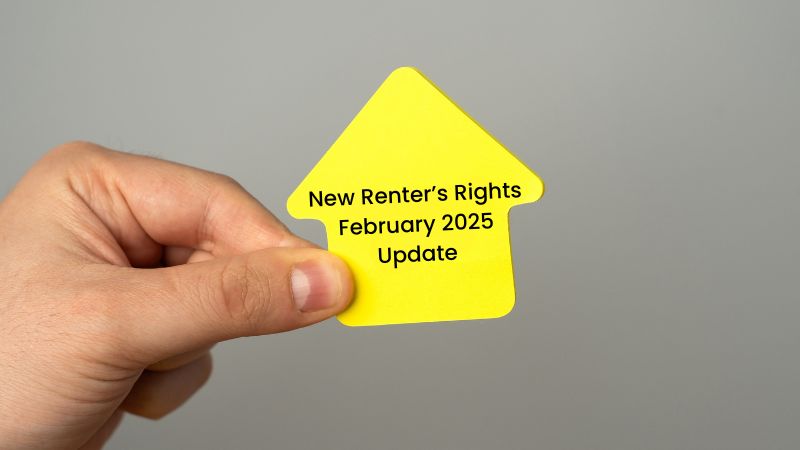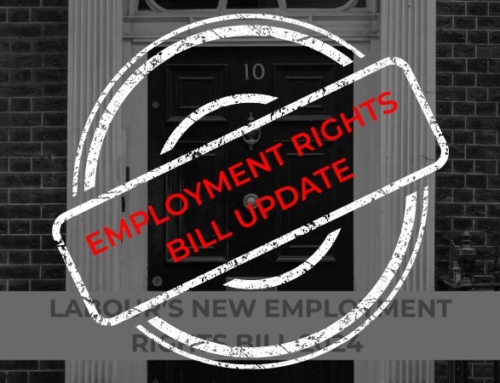The Renter’s Rights Bill passed its third reading in the House of Commons on 14 January 2025, and on 4 February 2025, it passed through the House of Lords. The Bill now moves onto Committee Stage, for which a date is yet to be announced.
The Bill is set to bring in various changes to the private residential rental sector. This article discusses a few (but not all) of the changes being made by the Bill.
What are the changes?
Some of the changes being made by the Bill include:
- Changing all Assured Shorthold Tenancies “AST’s” to ‘Section 4A assured tenancies’.
- The removal of section 21 evictions (no-fault evictions).
- Change to mandatory ground 8 & new ground 1A for section 8 evictions.
- The removal of a blanket ban on pets.
- Removal of bans on tenants with children or in receipt of benefits.
- Limiting the amount of rent that can be requested in advance to one month.
What is the likely impact of the changes?
Due to the number of proposed changes, this article will only comment on a few of those with the most impact and relevance to our clients at this time.
New ‘Section 4A assured tenancies’
On the ‘commencement date’** of the Bill, all current AST’s will automatically switch to ‘Section 4A assured tenancies’. Some of the differences between the current AST’s and section 4A assured tenancies include the following:
- There will be no minimum/fixed term.
- A rent period can be no more than one month.
- Tenants will be able to give the landlord two months’ notice to end the tenancy at the end of the current rent period, and this right will be available from day one.
Removal of Section 21 Evictions
Section 21 possession proceedings are issued where there is ‘no fault’ by the tenant, i.e., the landlord is unable to satisfy any of the grounds under section 8 of the Landlord and Tenant Act 1954 (“the L&T Act”), with some grounds which a Landlord can issue a section 8 notice and claim for example include the tenant:
- Being behind in rent payments
- Damaging the property
- Providing false information about themselves to gain the tenancy
- Becoming a nuisance to neighbours
- Using the property for criminal activities.
Section 21 proceedings will still be able to go through the usual process if a valid notice is served* before the ‘commencement date’ and proceedings can be issued if they started before the ‘applicable date’ (these dates are yet to be determined).
If a valid notice has been served more than 2 months before it expires, landlords will then have either 4 months from the expiry of the notice or 3 months of the ‘applicable date’ (whichever is earlier) to start proceedings.
Once the transition periods under the Bill expire, landlords will only be able to evict tenants if grounds for a section 8 claim can be made out.
*Section 21 notices cannot be served in the first four months of a tenancy.
Change to mandatory ground 8 and new ground 1A for Section 8 evictions
Ground 8 for Section 8 claims (as set out in the L&T Act) will be amended to increase the qualifying period of rent arrears to three months instead of two months, both at the time of serving the notice and at the hearing.
The notice period that landlords will need to provide to their tenant(s) will also be increased to four weeks from the current two weeks (this will likewise apply to other rent arrear discretionary grounds 10 and 11 for section 8 claims).
As a result, tenants will be at least four months behind on rent before landlords can start possession proceedings. This will cause landlords to suffer significant losses by the time the claim gets through the court system.
New ground 1A will however enable landlords to obtain a possession order if they can prove that they intend to sell the property.
The notice period for this is expected to be 4 months, and the notice can’t expire during the first 12 months of the tenancy.
Landlords must not re-market the property or make it available for rent of any kind (including Airbnb / short-term lets) for 12 months after the notice expires or from the date that a claim for possession is issued. Breaches of this rule can be subject to fines of up to £7,000.
The removal of a blanket ban on pets
For tenants already renting a property, landlords will not be able to ban pets being kept at the property, although some conditions can be implemented such as requiring insurance for any damage caused by pets, or indemnity to the landlord for cleaning costs at the end of the tenancy. Some exceptions permitting refusal of the keeping of pets will still apply, and landlords can still state ‘no pets allowed’ when advertising the property.
Removal of bans on tenants with children or in receipt of benefits
It will also be illegal for landlords and agents to blanket ban renting properties to people who receive benefits or who have children. This prohibition is also believed to extend to lease agreements, mortgages and insurance contracts.
Landlords will still be able to refuse applications on grounds of affordability as landlords can take a person’s income into account when deciding whether the prospective tenant would be able to make payment of the rent due.
Only one month’s rent payable in advance
The amount of rent that landlords can request to be paid in advance is intended to be limited to one month only, even if the tenant offers to pay more in order to secure the tenancy. This change might prevent tenants who are at higher risk from securing rental properties.
Some of the proposed changes have been met with objection by the Conservative Party who recognise the loss landlords stand to suffer as a result, such as in respect of increasing the arrears required to action the mandatory ground 8 for section 8 claims, as well as the increased notice period. They also recognise the difficulties some of the changes may cause prospective tenants, i.e., in respect of prohibiting no more than one month’s rent in advance, which may cause landlords to be even less likely to take a risk on some prospective tenants who are, for example, self-employed or tenants with low credit ratings.
How can Backhouse Solicitors help?
If you require any advice or further information on the new regime, please contact our experts and book a free 30-minute consultation.
Tel: 01245 893400
Email: info@backhouse-solicitors.co.uk
Visit: 17 Duke Street, Chelmsford, CM1 1JU
Or send us a message through the Contact Us page on this website.






